WP Engine review
Our WP Engine review finds it's an advanced platform for managed WordPress hosting that’s built with the needs of developers in mind
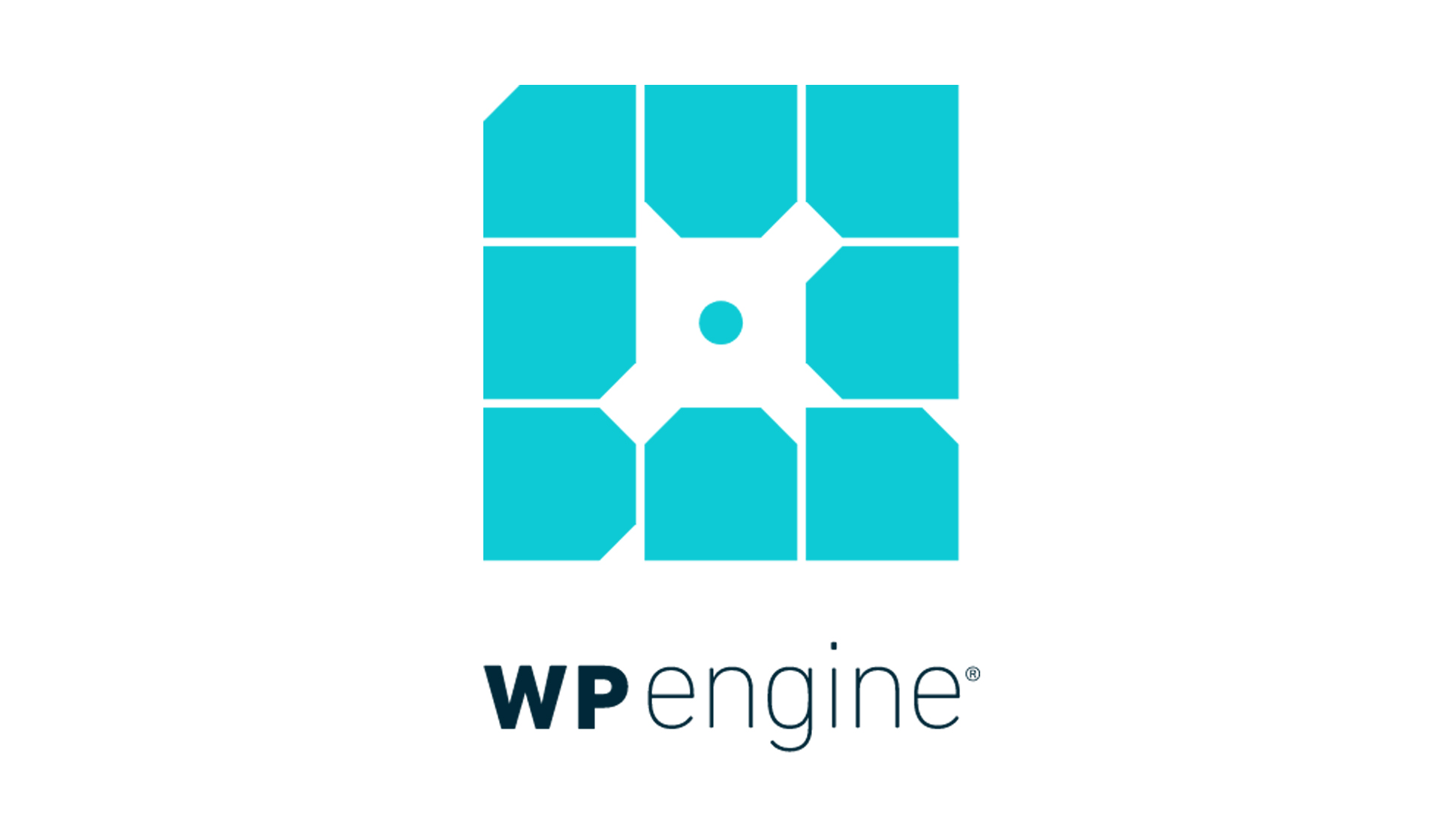
WP Engine is an advanced WordPress hosting platform that offers excellent development tools, security, and performance. It’s a great choice for experienced site owners who want a scalable WordPress website.
-
+
Automatic daily backups
-
+
Integrated WordPress website builder
-
+
Development and staging environments
-
-
May be overwhelming for beginners
-
-
Limited storage for multiple websites

WP Engine is a WordPress hosting platform that offers a wealth of advanced tools for WordPress developers. In our WP Engine review, we’ll help you decide whether this is the best web hosting service for building your WordPress site.
WP Engine review: Snapshot
WP Engine is a powerful managed WordPress hosting platform built with the needs of developers in mind. It includes essential features like automated backups, integrated development and staging environments for testing out changes, and top-notch performance. In addition, WP Engine offers 10 built-in WordPress themes and a simple block-based WordPress website builder.
WP Engine isn’t cheap, but for the money we think it offers far more powerful tools than Bluehost, one of its main competitors. That said, WP Engine can be daunting for first-time WordPress users. The platform is best suited for experienced site creators and WordPress developers who want to build flexible, scalable websites.
Score: 4.5/5
Read on for our full and detailed WP Engine review.
WP Engine’s competitors
How does WP Engine compare to its main competitors?
| Header Cell - Column 0 | WP Engine | Bluehost | Namecheap |
|---|---|---|---|
| Score | 4.5/5 | 3.5/5 | 4/5 |
| Pros | - Development sites for testing out code - Automatic daily backups | - 24/7 customer support - WordPress website builder available | - Inexpensive plans - Includes automatic plugin updates |
| Cons | - Limited storage for multiple sites - Not very beginner friendly | - Very expensive managed WordPress plans | - No development environment - Mediocre security tools |
| Verdict | WP Engine is an advanced platform for hosting WordPress sites. It offers backups, security, and even a development environment to test out changes to your site. | Bluehost is a leader in managed WordPress hosting with excellent performance, a simple website builder, and 24/7 customer support. | Namecheap is a low-cost alternative for managed WordPress hosting. It lacks more advanced tools, but offers decent performance on a budget. |
| View deals | Visit site | Visit site | Visit site |
WP Engine: Key features
Themes
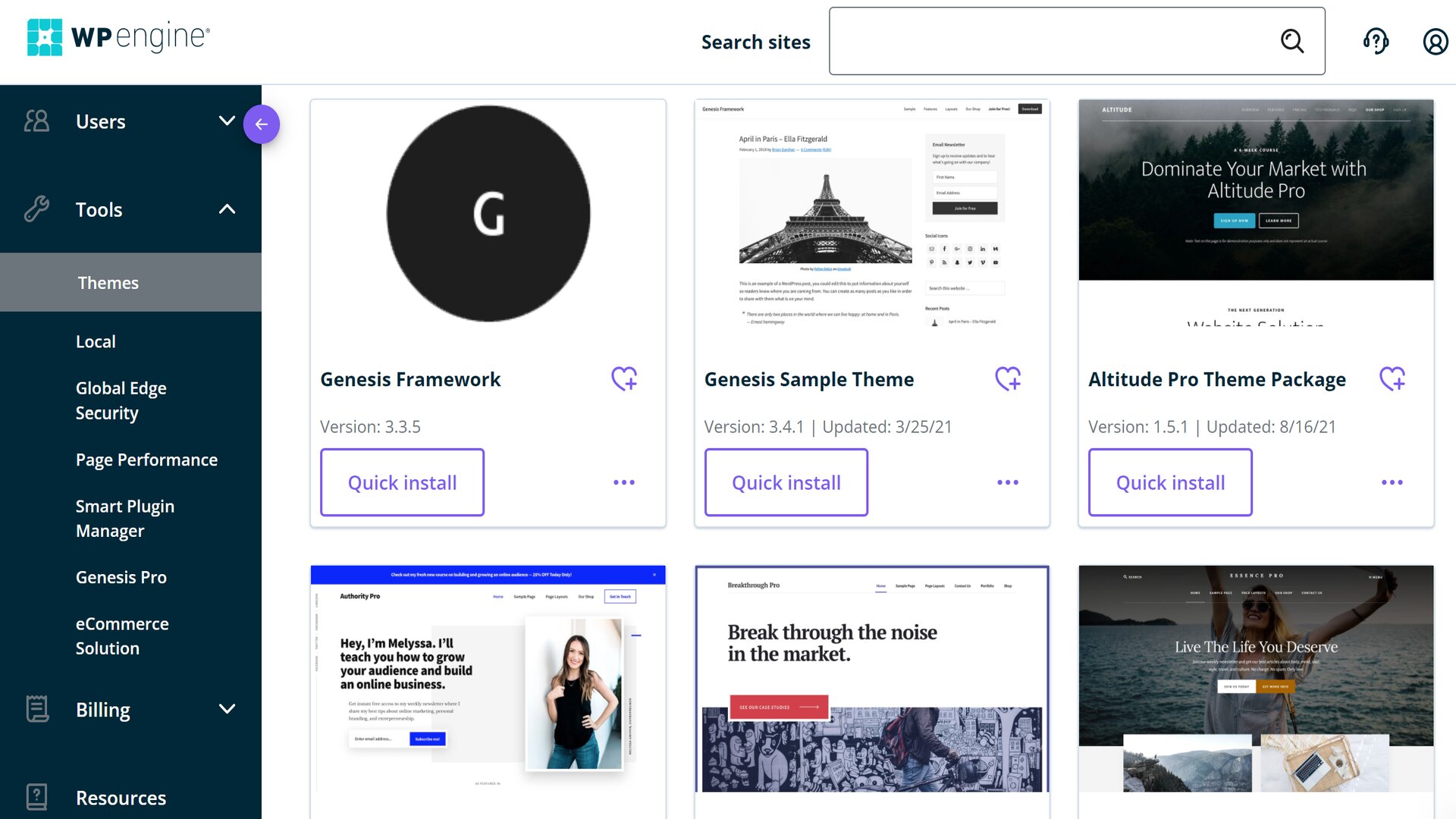
All WP Engine plans include 10 professionally designed themes that are mobile-responsive and SEO-friendly. They’re also compatible with WP Engine’s block-based website builder, so you don’t need to know how to code to build a WordPress website with these themes. You can switch themes at any time, and try them out in a development site before deciding to change.
Website builder
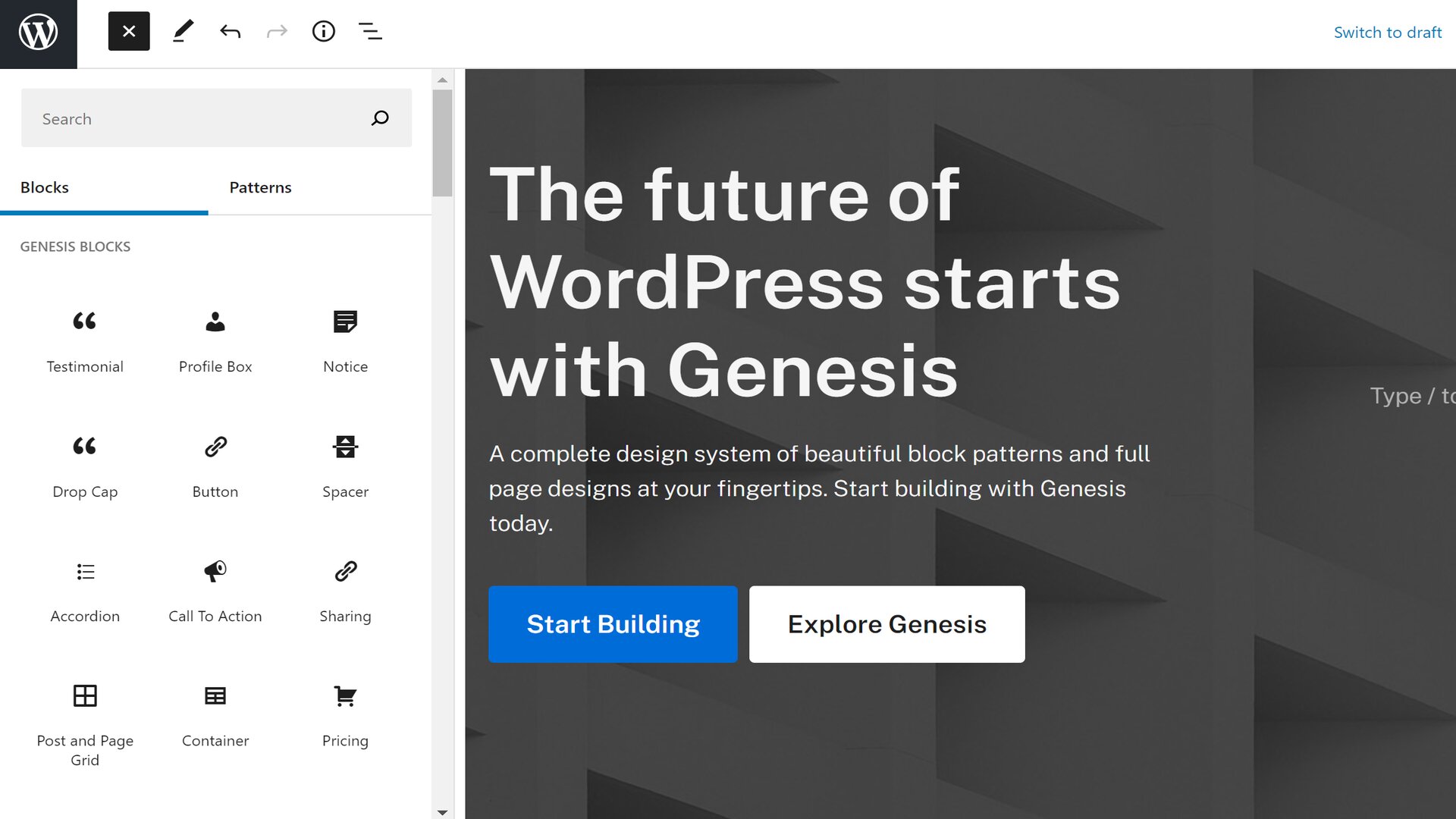
WP Engine includes a basic block-based website builder that lets you quickly add content to your website. The editor includes dozens of blocks for content like text, images, galleries, videos, and music. You can also add social media buttons, RSS feeds, and contact forms.
Sign up today and you will receive a free copy of our Future Focus 2025 report - the leading guidance on AI, cybersecurity and other IT challenges as per 700+ senior executives
Note that the website builder tools can be used with any Gutenberg block-compatible themes, including themes other than those provided by WP Engine.
Automated backups
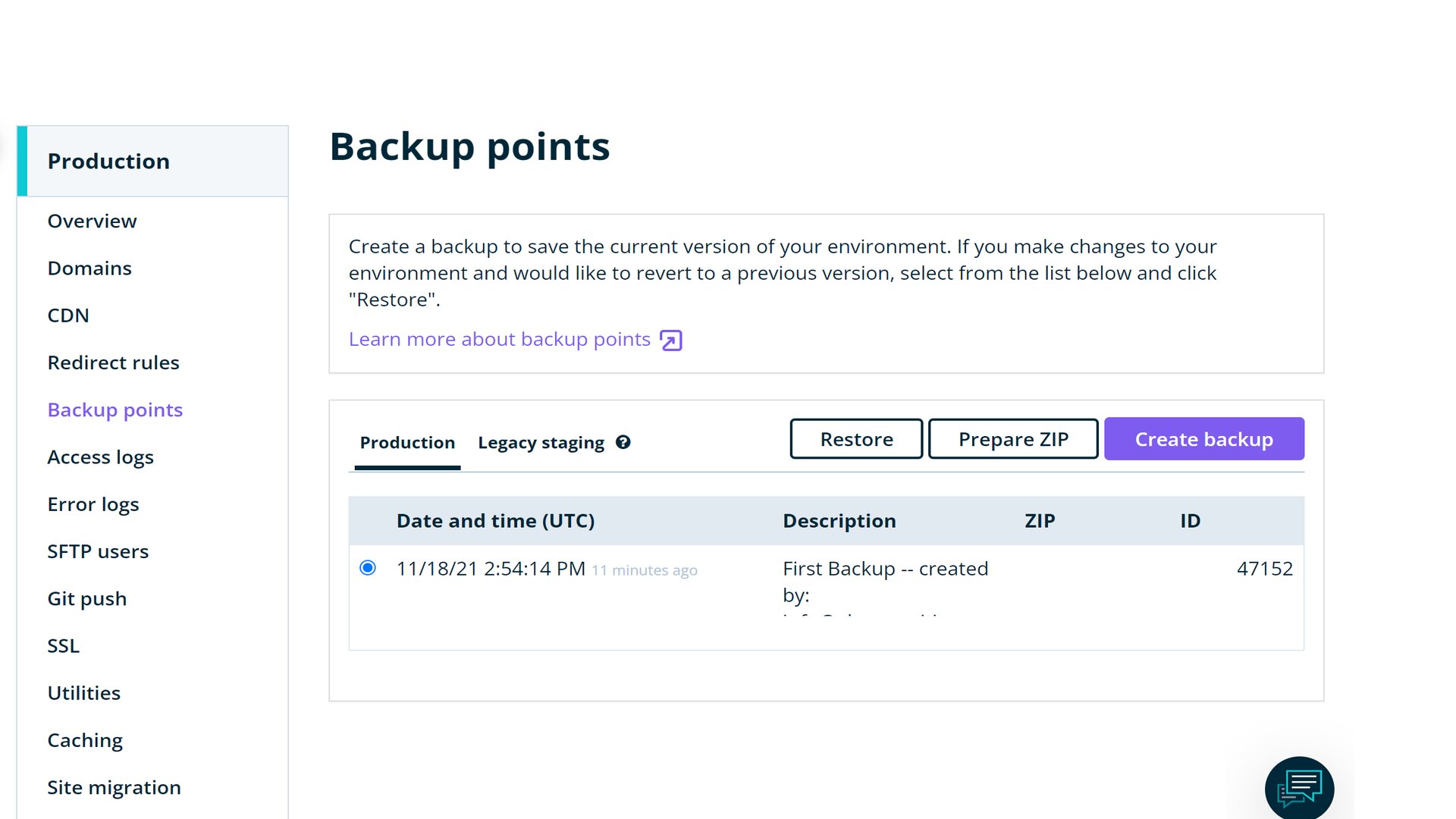
WP Engine makes it simple to back up your site. You can set the software to automatically back up your site once per day, or generate new backups on demand with just one click. Notably, you can also save backups of your staging environment. That can be very helpful when you’re testing out new code and want to make tweaks without losing your work.
Development and staging environments
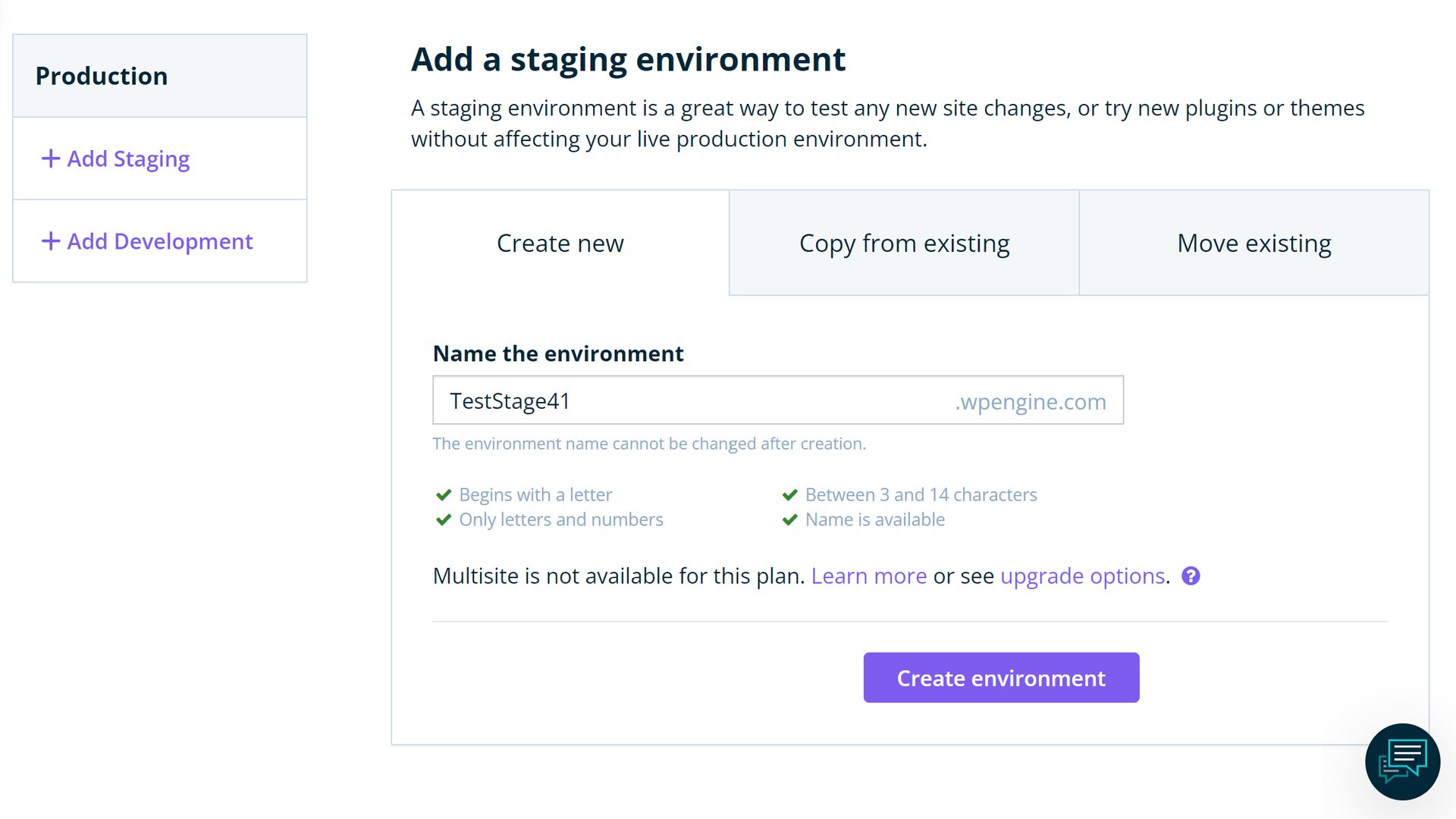
Every WP Engine website includes three different hosting environments: a development environment, a staging environment, and a production environment.
The development and staging environments enable you to test out changes to your site, including everything from moving a few content blocks to rewriting your theme’s code. The development environment is specifically intended as a place where you can try out new code on your own, while the staging environment is shareable, so you can get feedback from collaborators and potential site users.
The production environment is where your live WordPress website is hosted. When you’re happy with changes to a staged site, you can push them live by moving your code from the staging environment to the production environment. Your previous live site is automatically backed up during this process.
CDN
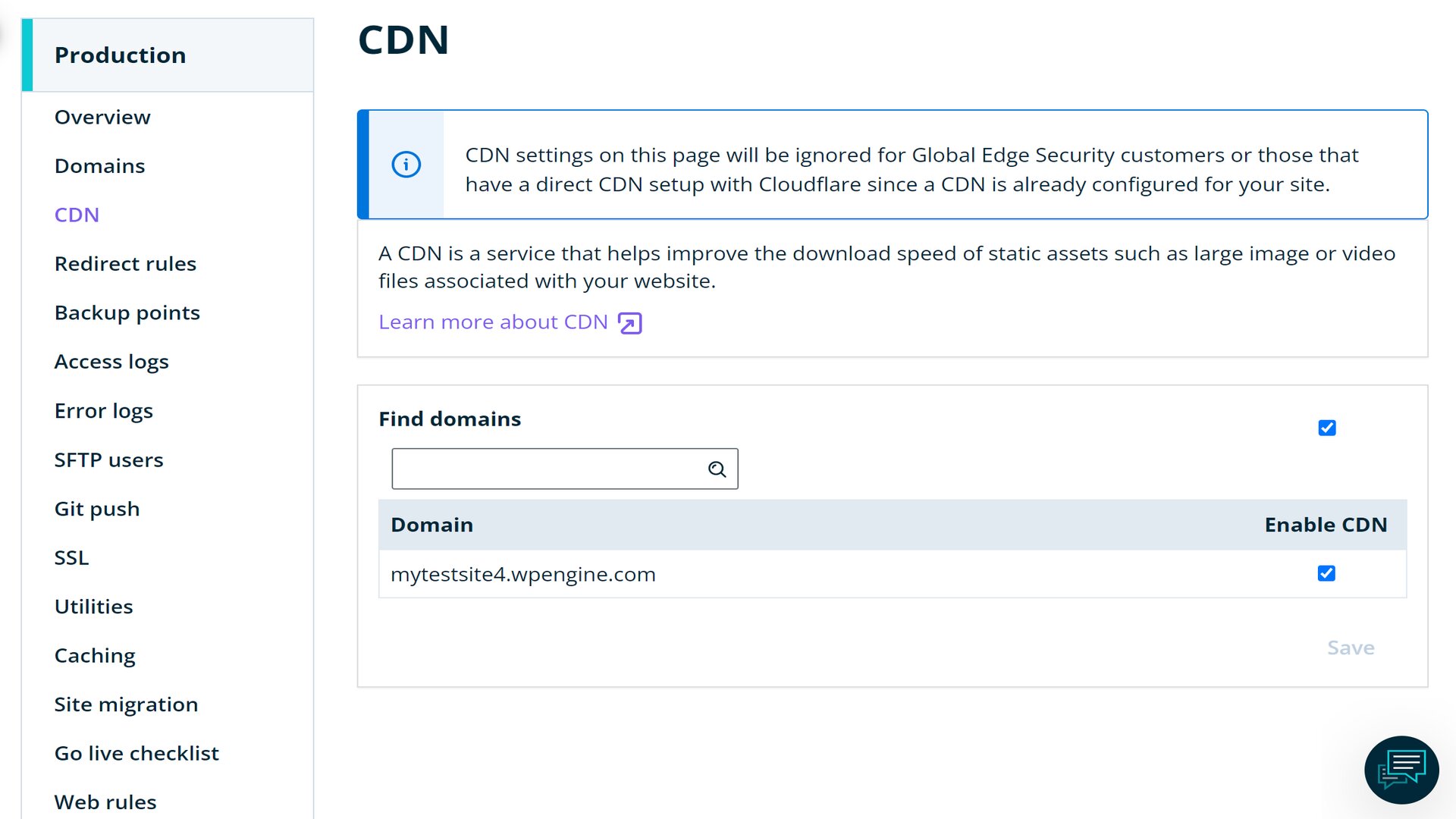
WP Engine has a built-in CDN to improve your site’s performance. A CDN makes your website more quickly accessible to visitors around the world and protects your site against DDoS attacks. If you already have your own CDN, like Cloudflare, you can use that instead of WP Engine’s network.
WP Engine: What’s new in 2022?
Since the last time we reviewed WP Engine, the platform has made a few small but important changes. To start, as we’d expect, WP Engine has kept up with the latest developments in WordPress itself. All sites have now been updated to WordPress 5.7, the newest version of the WordPress software.
The company has also added single sign-on for all users. This makes the experience of using WP Engine a bit more seamless, since you only need to log in once to access both your WP Engine account and your site’s WordPress dashboard. If you have multiple websites with WP Engine, you can access all of them with a single login.
Finally, WP Engine launched its free Atlas Content Modeler plugin. This will mainly be of interest to developers, as it’s designed to streamline the process of creating content models while writing code for WordPress themes. The new plugin integrates with WPGraphQL, a tool frequently used by WordPress developers.
WP Engine: Pricing
WP Engine offers its Managed WordPress plan for business websites, and its eCommerce Solutions plan for online stores. The eCommerce Solutions plan includes a managed installation of WooCommerce and automated plugin updates, while there's also Advanced Solutions available for enterprises on request.
Pricing for both the Managed WordPress and eCommerce Solutions plans starts respectively at £24 and £59 a month for one website with 10GB of storage and 50GB of bandwidth a month, under the Startup level. You can scale up to building 30 sites under the Dedicated level, which requires conversations with sales.
There are also Professional, Growth, and Scale intermediate levels between Startup and Dedicated, with costs and features scaling up with the monthly or annual price. Storage and bandwidth are shared between all your sites, with up to 50GB of disk space and 500GB of bandwidth a month for 30 sites at the Dedicated level.
WP Engine lets you pay month-to-month, or you can pay annually for a 17% discount. In addition, WooCommerce hosting plans are available separately, across the same plan structure and ranging from £24 a month to £227 a month.
WP Engine’s pricing plans
Managed WordPress
| Plan type/feature | Managed WordPress (Startup) | Managed WP (Professional) | Manged WP (Growth) | Managed WP (Scale) | eCommerce Solutions (Startup) | eComm (Professional) | eComm (Growth) | eComm (Scale) |
|---|---|---|---|---|---|---|---|---|
| Cost per month | £24 | £39 | £75 | £189 | £59 | £49 | £92 | £228 |
| Cost per year | £240 | £470 | £900 | £2,270 | £590 | £590 | £1,100 | £2,730 |
| Staging environment | ✔ | ✔ | ✔ | ✔ | ✔ | ✔ | ✔ | ✔ |
| Storage | 10GB | 15GB | 20GB | 50GB | 10GB | 15GB | 20GB | 50GB |
WooCommerce
| Plan type/feature | Ecommerce Hosting (Startup) | Ecomm (Professional) | Ecomm (Growth) | Ecomm (Scale) |
|---|---|---|---|---|
| Cost per month | £24 | £49 | £91 | £227 |
| Cost per year | £290 | £590 | £1,100 | £2,730 |
| Staging environment | ✔ | ✔ | ✔ | ✔ |
| Storage | 10GB | 15GB | 20GB | 50GB |
Testing WP Engine
We took WP Engine for a test drive to find out more about how this platform stacks up to other WordPress hosting options. Specifically, we used WP Engine’s tools to set up our WordPress website, and then tracked its performance for one week.
WP Engine: Building a WordPress website
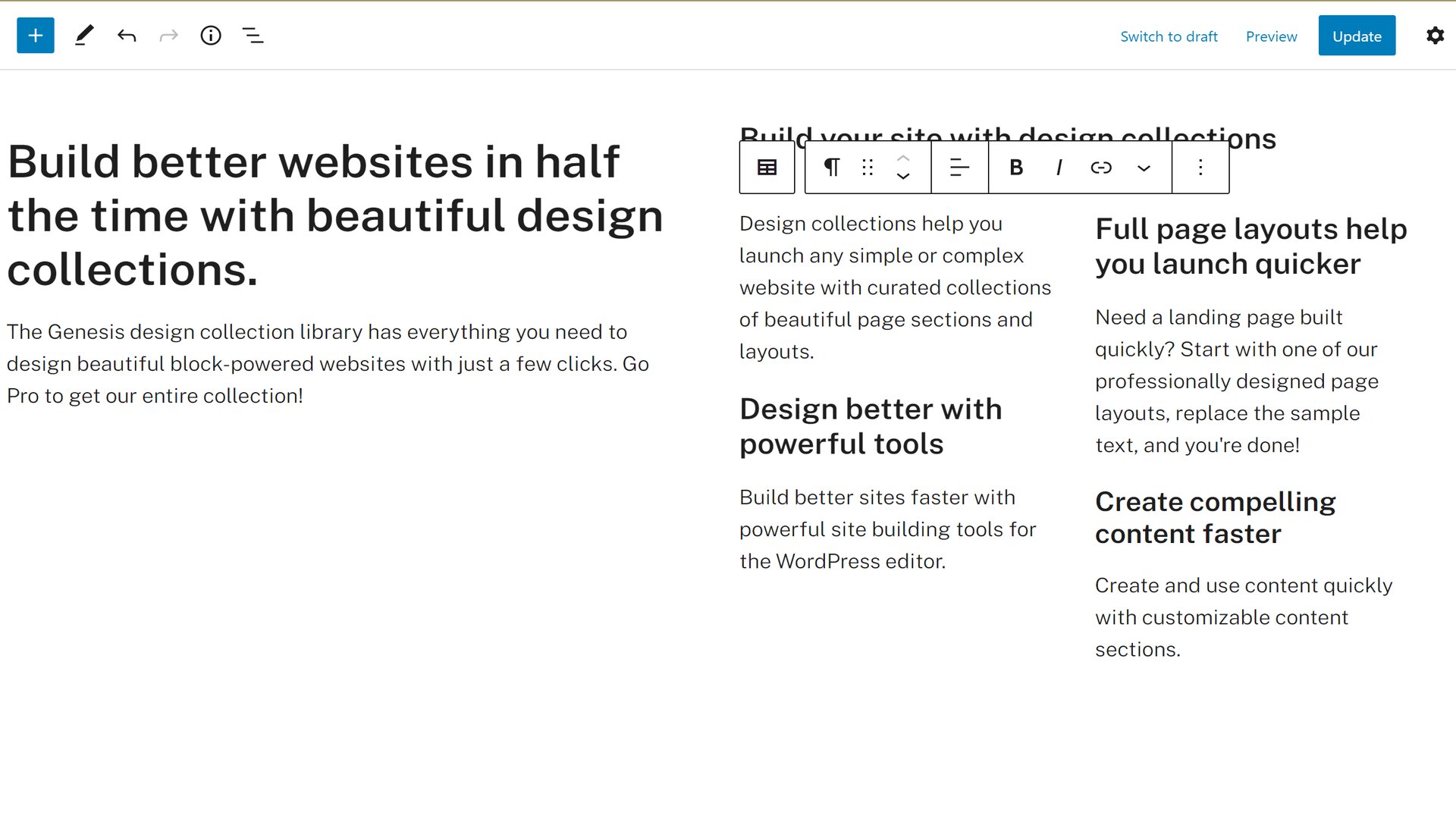
We built a WordPress site using WP Engine’s integrated website builder. Getting set up was simple, since the platform comes with WordPress and a builder-compatible theme installed by default. So, we could simply launch a site and start creating right away.
We found that adding and customising content blocks is very straightforward. However, the degree of customisation that was allowed was very limited. For example, we could bold, italicise, or colour text, but we couldn’t change its size or font without editing our site’s theme.
In addition, we could drag content blocks around the page, but we didn’t have much control over how they were laid out next to each other, or how big they were.
Overall, the WP Engine builder was nice to have, but it was certainly no replacement for one of the dedicated best website builders. You’ll need to have at least basic CSS coding skills if you plan to make any significant changes to your site’s theme.
WP Engine: Performance
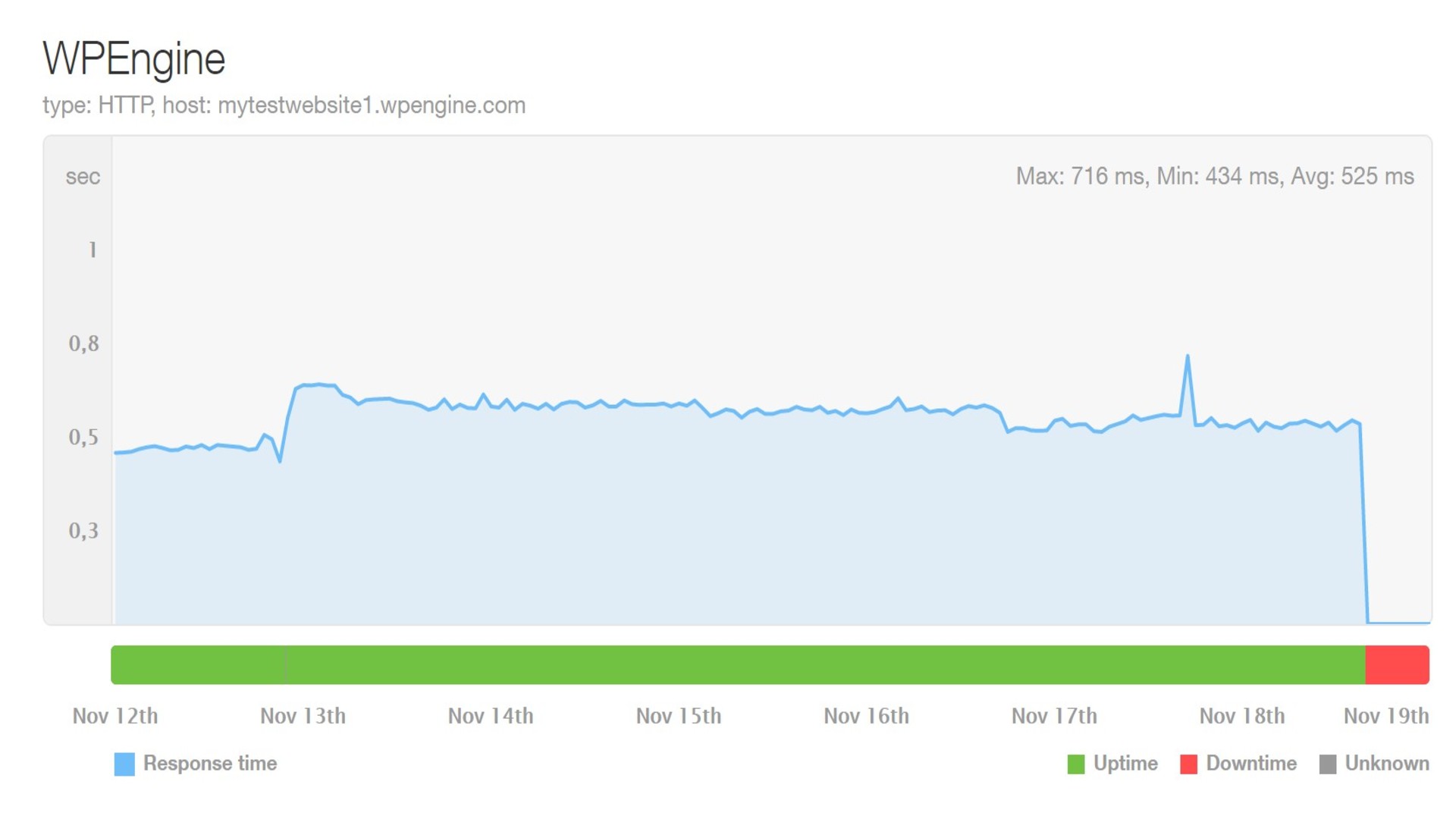
We tested out WP Engine’s performance for one week using Pingdom. Over the span of our test, our WP Engine site had an average response time of 525ms and a total uptime of 100%. While that’s not the fastest hosting we’ve tested, it’s quite good, and we’re pleased that our site experienced no downtime during our test.
Alternatives to WP Engine
WP Engine isn’t your only option for managed WordPress hosting.
Bluehost offers a similar managed hosting service that’s designed more for the average website owner than for developers. There are fewer tools for developers, which in turn makes the platform’s back end somewhat easier to navigate.
However, we found that this platform leaves out development and staging environments. We think these are well worth having, even if you’re just changing your site’s layout rather than modifying CSS code.
WP Engine and Bluehost compete closely on price. Bluehost's managed WordPress plans start at $29.99 a month for one website, comparable to WP Engine’s Managed WordPress plan. You’ll have to pay extra if you want a block-based site editor, however.
WooCommerce plans at Bluehost also start at £19.81 a month, which makes Bluehost slightly cheaper than WP Engine for setting up an online store.
If you’re on a tight budget, you may want to consider a cheaper option like Namecheap. Its managed WordPress hosting plans are very basic compared to what WP Engine offers, but you can launch a site with 10GB of storage space for just £3.98 a month. At that price, Namecheap includes on-demand backups, automatic plugin updates, and a development environment.
However, we found that this platform falls well short of WP Engine when it comes to security features. It also doesn’t include a WordPress website builder.
WP Engine’s features compared to the competition
| Header Cell - Column 0 | WP Engine | Bluehost | Namecheap |
|---|---|---|---|
| WordPress website builder | ✔ | ✔ | ✖ |
| Backups | Automatic and on-demand | Automatic and on-demand | On-demand |
| Support | 24/7 phone, email, and live chat | 24/7 phone, email, and live chat | 24/7 email and live chat |
| Basic plan | £24 a month | £19.81 a month | £3.98 a month |
WP Engine: Final verdict
WP Engine is a powerful platform for managed WordPress hosting. It offers a huge range of tools and features, including automatic backups, development and staging environments, and a built-in CDN. WP Engine also includes a basic WordPress website builder and themes to accompany it, which makes launching a site easier for non-developers.
WP Engine’s in-depth toolset can be somewhat overwhelming for beginners, and especially for those who are completely new to WordPress. However, the platform is well laid out, and doesn’t take long to get used to.
While WP Engine isn’t cheap, we think it provides an excellent bang for your buck. It’s comparable in price to Bluehost, but Bluehost’s basic WordPress plans don’t include a drag-and-drop site builder. Neither platform gives you much storage space if you have multiple sites, which is a significant downside for building content-heavy websites.
On the other hand, WP Engine’s basic hosting plan is more than six times the price of a Namecheap WordPress hosting plan. Namecheap is an excellent option for website creators on a budget, but it doesn’t offer a site builder or advanced security features.
Overall, we think WP Engine is a great choice for experienced WordPress website builders and WordPress developers. It offers all the tools you need to scale up your site while ensuring that your WordPress site runs smoothly.
Further reading on web hosting
Check out our guide to the best WordPress hosting to find more platforms like WP Engine. We also offer a closer look at managed WordPress hosting and compare web hosting vs WordPress hosting to help you decide whether WordPress hosting is right for you.
Michael is a prolific author in business and B2B tech, whose articles can be found on Business Insider, Entrepreneur, TechRadar Pro, IT Pro Portal, Tom's Guide, and more, covering everything from international tech regulations to corporate finance and emerging tech brands and markets. A successful copywriter and entrepreneur, Michael has worked with dozens of SaaS and tech companies, and has his finger firmly on the pulse of B2B tech, finance and business.
-
 'The pace of innovation at Snowflake is in overdrive': Buoyed by OpenAI partnership, firm teases more big things to come
'The pace of innovation at Snowflake is in overdrive': Buoyed by OpenAI partnership, firm teases more big things to comeNews Snowflake’s executive vice president of product highlights key innovations that are being brought to market at super speed
By Maggie Holland Published
-
 Openreach wants enterprises to move quickly ahead of the PSTN switch-off, so it’s hiking prices on legacy services to push them into action
Openreach wants enterprises to move quickly ahead of the PSTN switch-off, so it’s hiking prices on legacy services to push them into actionNews Businesses face massive price hikes if they fail to act before the PSTN switch-off
By Emma Woollacott Published
-
 AT&T expands AWS partnership in network modernization, cloud migration push
AT&T expands AWS partnership in network modernization, cloud migration pushNews The telecoms giant said the deal will supercharge the nation’s connectivity infrastructure
By Emma Woollacott Published
